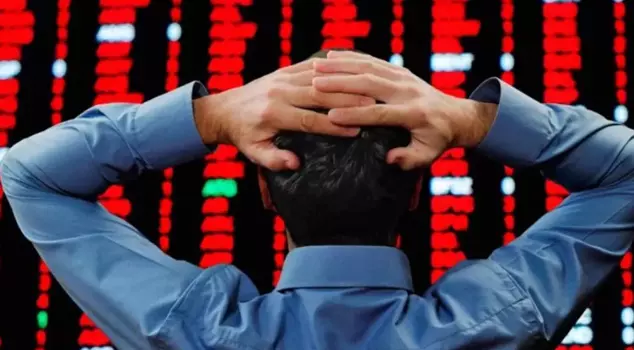
07.04.2025 08:30
After U.S. President Trump emphasized that he would "not back down from tariffs," U.S. futures indices started the new week with a decline of over 3%. In Japan, losses exceeded 8% in early trading, while in the Chinese stock market, they surpassed 5%. There were also declines in gold, oil, and Bitcoin, with Ethereum experiencing a loss of 10%.
```html
The shock effect of the customs tariffs announced by U.S. President Donald Trump last week is growing in global markets. World stock markets started the new week with sharp declines. Along with the stock markets, declines in gold, oil, and cryptocurrencies continue.
BITCOIN STARTED WITH A DECLINE
After the recent developments, Bitcoin and the cryptocurrency markets, which had shown strong performance contrary to expectations, could not hold on any longer.
ETHEREUM EXPERIENCES SIGNIFICANT LOSS
Ethereum (ETH), the second largest cryptocurrency by market capitalization, experienced a sharp decline of 10% in the last few hours. Ethereum dropped to $1601 during the day, resulting in a significant loss. The selling pressure on Ethereum, the second largest cryptocurrency, is seen to be increasing.
SHARP DECLINE IN STOCK MARKETS
Looking at U.S. stock markets, futures are experiencing losses of over 3%. As of 06:00 GMT, trading continues with a decline of 2.35% in Dow Jones, 2.9% in SP 500, and 3.9% in Nasdaq.
Destruction continues in Asian markets. In the first trades on the Japanese stock market, declines exceeded 8%. Subsequently, losses decreased to 6.40% as of 06:00 GMT. The Nikkei index fell to the 31,000 level today, testing the low levels seen during last year's "Black Monday" shock.
As of 06:00 GMT, looking at other stock markets;
-The CSI 300 index in the Chinese stock market started the day with a loss of over 5%.
-In South Korea, the Kospi index saw losses exceeding 4%.
-In Hong Kong, the Hang Seng index fell by around 9% in the first trades.
-In the Australian stock market, losses approached 4%.
TRUMP: NO STEP BACK
Looking at the latest developments over the weekend; U.S. President Trump stated that he would not step back from comprehensive tariffs unless other countries balance their trade with the U.S.
Regarding the tariffs that shook financial markets and increased fears of recession, Trump expressed that he was not worried, saying, "Sometimes you need to take medicine to fix something."
Trump also mentioned that he speaks with leaders from all over the world and that they are "eager for a deal," stating, "We will not give in. We will have surpluses, or at worst, we will compensate for our losses."
STARTING ON WEDNESDAY
U.S. Treasury Secretary Scott Bessent also stated that the new tariffs are not of the kind that could "disappear within weeks," and that "countries need to see what they will offer." Commerce Secretary Howard Lutnick indicated that there is no possibility of postponing the tariffs.
Meanwhile, the last customs tariffs are expected to start from Wednesday. Analysts express that "a new period of economic uncertainty with no clear end has begun."
LATEST FIGURES FROM MARKETS
On the other hand, there are sharp price movements in currencies, commodities, and cryptocurrency markets. Looking at the figures at the beginning of the week;
-The dollar index starts the week at 102.85, and 10-year U.S. Treasury bonds are at 3.93% levels.
-The EUR/USD parity is hovering around 1.9035.
-Gold fell below $3,000 for the first time since March 17. Following that, with reaction buying, trading continued around $3030 as of 06:00 GMT.
-Brent oil dropped to the $63 level. Subsequently, prices managed to recover to $63.90.
-Bitcoin also fell below $80,000. In the morning hours, trading continued around $78,500.
FEARS PEAKED
Global market analysts state that many investors are afraid of the worst-case scenario, such as a "prolonged trade war," saying, "There was an expectation of negotiations or a change in tariffs over the weekend. But that did not happen. Without seeing agreements to reduce tariffs, fragility may continue. Investors are now more concerned about a market collapse and a global recession. We are not sure when stocks will hit the bottom, but it does not seem very likely to return to the levels before April 2 in the current situation and soon," they say.
```